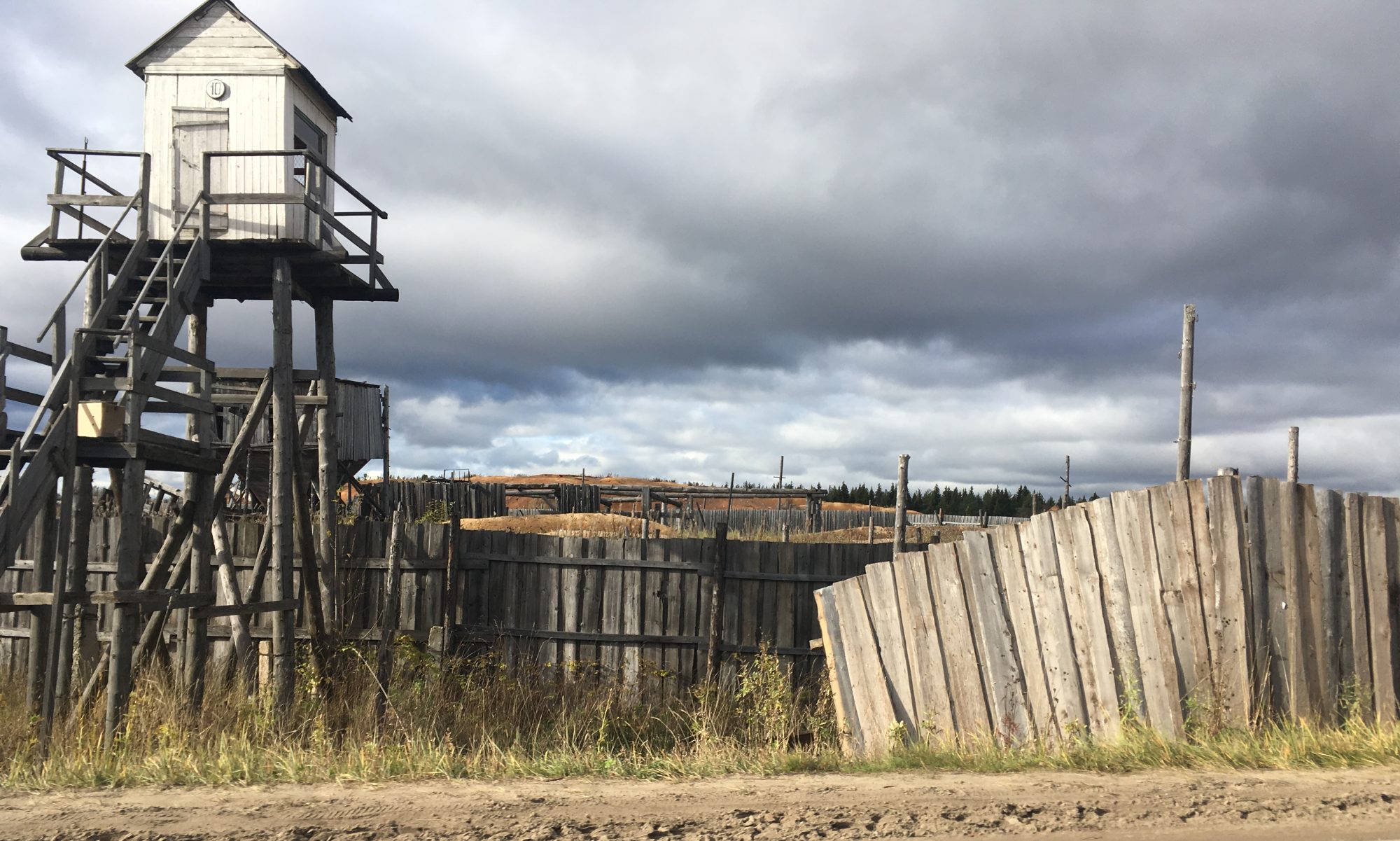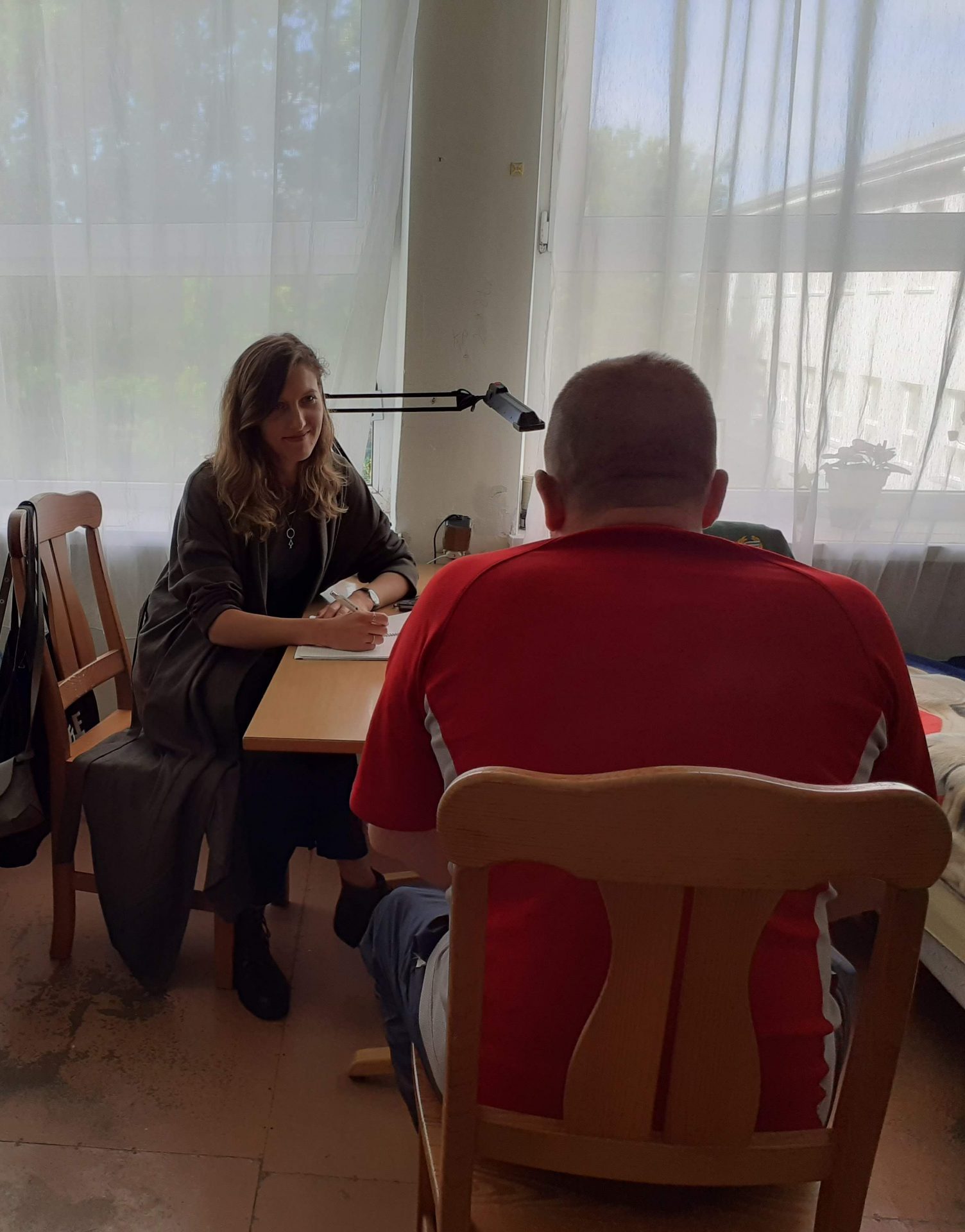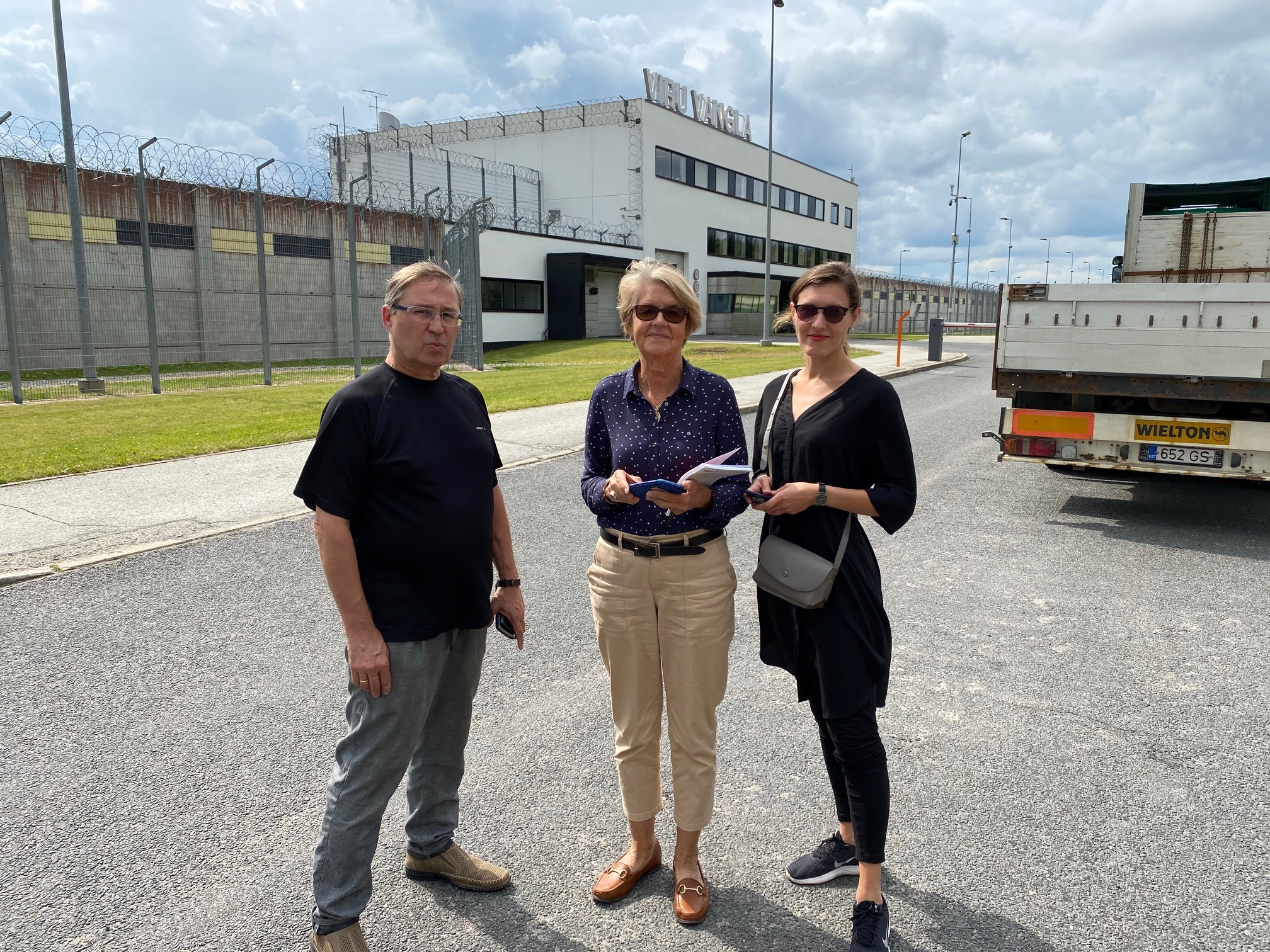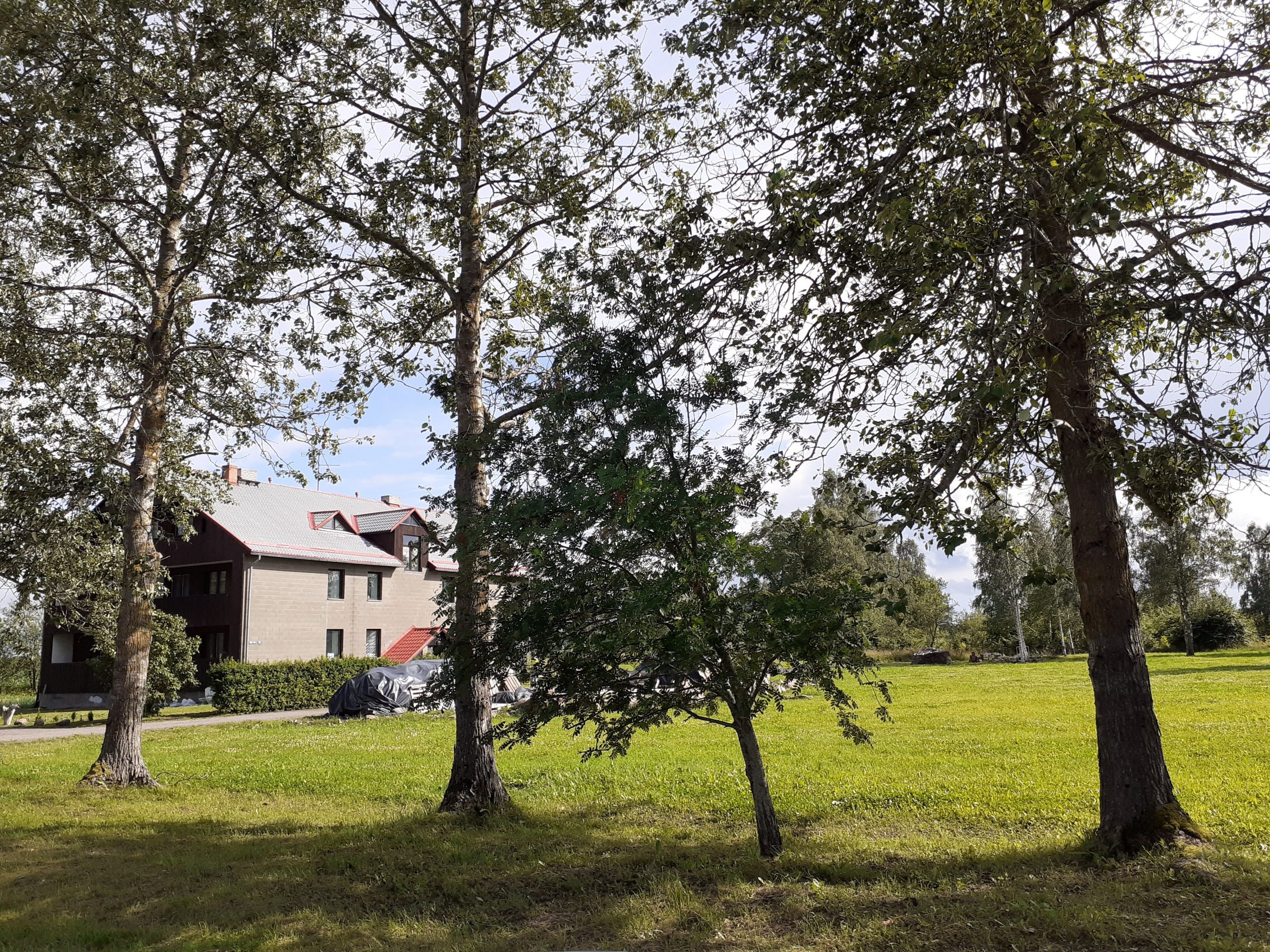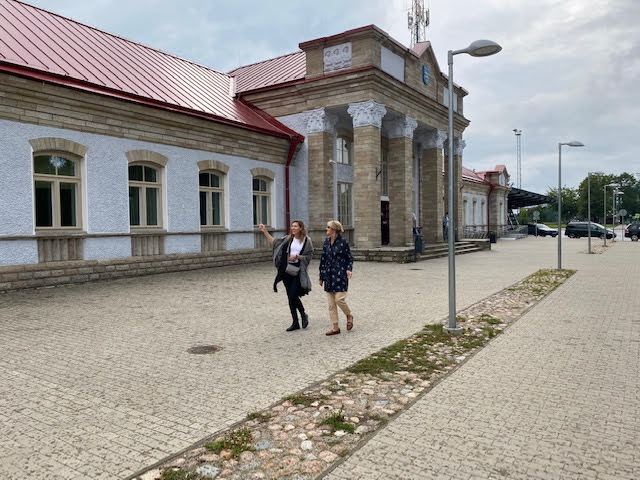On 20 October 2020, the GULAGECHOES team hosted a seminar with Ksenia Runova and Leonid Zhizhin of the Institute for the Rule of Law (Saint Petersburg). They presented their recent work on prison geography and social contacts between prisoners and their families. Read more about their findings here (in Russian).
Lessons of the Recent Past: From Tuberculosis to COVID-19 in Russia’s Prisons
BY JUDITH PALLOT, PI “GULAGECHOES”
In a new article in Riddle, an online journal on Russian affairs, project PI Judith Pallot compares how the current pandemic is unfolding in Russian prisons to past epidemics in recent Russian history. The publication is available in Russian and in English. It is also partly reproduced on the project blog.
Continue reading “Lessons of the Recent Past: From Tuberculosis to COVID-19 in Russia’s Prisons”
GULAGECHOES Project Team Away Day: Thursday 8th October, 2020, Radisson Blu, Turku
10am-6pm
The purpose of the Away Day was for the team to share the results of the fieldwork that they had undertaken during the summer and to discuss the pre-circulated draft articles under preparation for publication.
The reports by the team took place against the backdrop of the corona virus pandemic which has wreaked havoc with the project’s field work schedule. Access to Russia to continue archival work on the gulag and for interviews in Russia and Georgia which had been planned had had to be cancelled because of travel restrictions and alternatives found. It was what had been achieved by the alternatives pursued that was the focus of the first session. It was kicked off by a report by the PI on some interviews that had been conducted by a sub-contracted researcher in September in rural Leningrad oblast. The interviews had been taken with people who had served sentences in the late Soviet era and promise to provide intriguing insights into the experiences and treatment of members of a small rural community of hunters and foresters.
The temporary lifting of travel restrictions between Finland and Estonia provided the team with the opportunity of developing research in Estonia: Dr Mikhail Nakonechnyi was able to spend a few weeks in the Estonian State archive in Tartu where he found some rich materials about the establishment of the gulag after WWII right up to the end of the Soviet period. He gave an outline of his main findings which provoked much questioning and discussion. Then Dr Olga Zeveleva gave a very full account of the interviews she and the PI had conducted with Russian speaking Estonians who had recently been released from the Viru-Vanga prison in NE Estonia. Both the archival materials and interviews in Estonia prove to be very important in filling in the gap in our knowledge of the Soviet prison in the last two decades of Soviet rule.
The first session which continued on after a lunch break that gave the team the opportunity to have a look round Turku, was rounded off by Dr Costanza Curro who remains unable to get into the field on Georgia but has taken responsibility for supervising the field work of an on-shore researcher contracted to do the interviews for the project. She reported on these and was also able to report on work that she has initiated on the Roma as a group of transnational prisoners, outlining her ideas of how this can be taken forward once the travel restrictions are lifted. The second session was kicked off by Dr Larisa Kangaspuro who presented the draft of her article/book chapter of the ethnic dimension of Imperial Russia’s use of exile and katorga. This took us to the end of the day, and the decision was made to continue the discussion of the draft articles at the following Tuesday team meeting in the Aleksanteri, when we would also have a zoom discussion with Dr Rustam Urinboyev about his recent field trip to interview former Uzbek national incarcerated who had served sentences in Russian colonies. These duly took place bringing the Away Day and its extension to a successful conclusion.
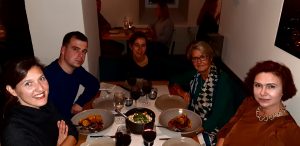
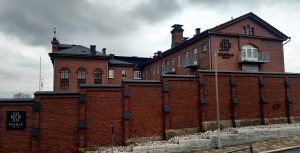
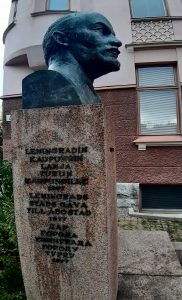
International conference (in Zoom) “Development Strategies for the Baltic Region”, September 29, 2020
Caught in Russia’s Prison-Pandemic Nexus
BY DR. OLGA ZEVELEVA
In a new article in Riddle, an online journal on Russian affairs, Dr. Olga Zeveleva analyses the state of Russian prisons during the COVID-19 pandemic and compares it to prisons in other European countries. The publication is available in Russian and in English, and is partly reproduced on the project blog.
Fieldwork trip to Estonia
At the end of July, Project Director Judith Pallot and Postdoctoral Researcher Dr Olga Zeveleva launched fieldwork in Estonia. They spent time in Tallinn and in Jõhvi (Ida-Viru County in north-eastern Estonia), conducting pilot interviews with people who have been to Estonian and Soviet prisons between the 1960s and today, as well as focus groups and interviews with people who work on prisoner adaptation after release. The fieldwork was based predominantly at the New Generation rehabilitation centre in Jõhvi, thanks to Vadim Jerjomenko and Yury Mysnik, who run the center. Judith and Olga also visited the Patarei Prison in Tallinn, which was closed in 2002, and went to see Viru Vangla in Ida-Viru County, where fieldwork will hopefully continue in the future among current prisoners. This work would not have been possible without the help of Avo Üprus.
The fieldwork conducted during this trip has laid the foundations for further research in Estonia, which will focus mainly on interviews with former prisoners and prisoners, with special attention to linguistic and ethnic dimensions of prisoners’ experiences in the Soviet prison system, in the prison system of Estonia before the major recent prison reform, and in the newly reformed Estonian prison system. Work in Estonia will continue in autumn 2020.
The Veil of Secrecy: How did the Soviet government quell epidemics in prisons?
BY DR. MIKHAIL NAKONECHNYI
In a new blog post, historian Dr. Mikhail Nakonechnyi discusses the Soviet legacies that still plague Russia’s contemporary penitentiary services. He analyses the secretiveness of penal system officials, and compares how the USSR handled epidemics with how Russia is handling the current COVID-19 pandemic. He shows that current practices of secrecy about epidemiological data resemble not the Stalinist GULAG era, but rather Soviet prisons of the 1920s. Continue reading “The Veil of Secrecy: How did the Soviet government quell epidemics in prisons?”
Workshop 28.06-01.07.2020 for the project GULAGECHOES: Ethnicity in the Russian Prison System
The third workshop for the researchers involved in the GULAGECHOES project took place 29thJune-1st July 2020. It took place off-site at a venue in Finnish Karelia, which allowed the team to give its concentrated attention to reflect on the progress already made towards the project’s goals and to plan strategically for the year ahead. The meeting took place against the backdrop of the COVID-19 crisis that had brought a halt to fieldwork and data collection in early spring. The closure of international borders meant that some team members had to join by ZOOM, but the core researchers were able to attend in person. The first working day was devoted to the critical analysis of a series of key articles and books on ethnicity, race, and nationalism that had been circulated in advance. This gave us the framework for considering the interview and archival materials that the project has collected to date. The second day was devoted to methodological issues and we were fortunate to be joined by Dr Sofya Gavrilova, who gave a presentation on the ways in which Geographical Information System technologies can be used by the project to visualise our data. On the final morning we discussed the principal findings of the interviews that have been conducted in Russia, Uzbekistan and Georgia.


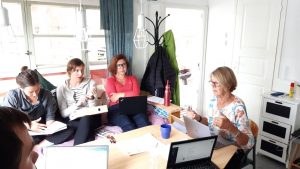
Muslim prisoners in Russia during the COVID-19 pandemic
BY DR. RUSTAMJON URINBOYEV
In a new blog post on prisons during the pandemic, Dr. Rustamjon Urinboyev turns to the experiences of Muslim prisoners in contemporary Russia. Drawing on his extensive fieldwork among migrants from Uzbekistan who have served prison sentences in the Russian Federation, he analyses the everyday practices of these transnational prisoners and their prison communities, and explains how these practices have changed since the onset of coronavirus-related lockdowns.
Continue reading “Muslim prisoners in Russia during the COVID-19 pandemic”
“Rise and Fall of Radical Organizations”: Seminar with Dr. Vera Mironova
On 12 June 2020, the GULAGECHOES team hosted a seminar during which invited speaker Dr. Vera Mironova presented her book manuscript “Rise and Fall of Radical Organizations. A 10 sq.m Prison Cell Experiment”, which is currently under review. You can read more about Mironova’s work on her website.
